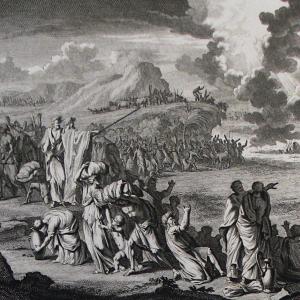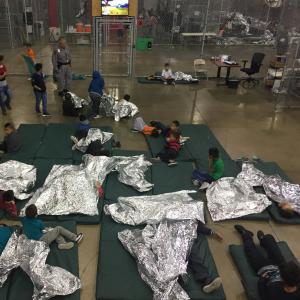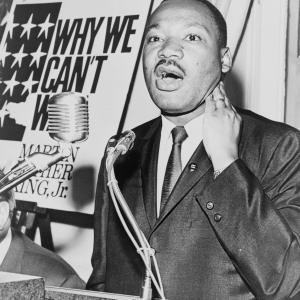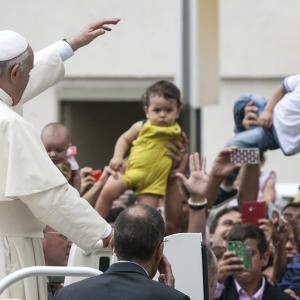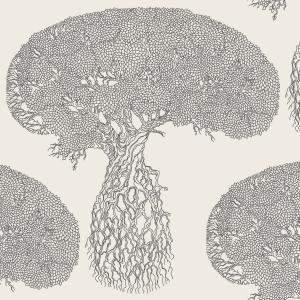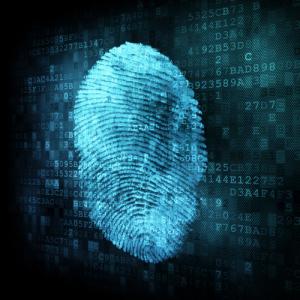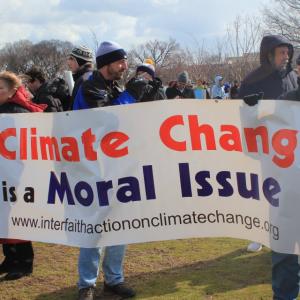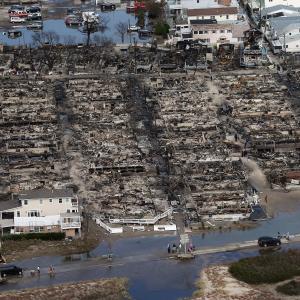Rabbi Arthur Waskow founded (1983) and directs The Shalom Center. He had long before been a founding Fellow (1962-1977) of the Institute for Policy Studies, where he wrote The Limits of Defense, From Race Riot to Sit-in, and the original Freedom Seder, and co-authored with Marc Raskin “A Call to Resist Illegitimate Authority,” an influential outcry for resistance to the U.S. war against Vietnam. Feeling called to and by the Freedom Seder into a lifelong engagement with prophetic spirituality, he wrote Godwrestling – Round 2, Seasons of Our Joy, Torah of the Earth, The Tent of Abraham, and Dancing in God's Earthquake: The Coming Transformation of Religion, along with 20 other books.
Posts By This Author
Can Local Co-Ops Challenge Corporate Carbon Pharaohs?
This approach might serve as a model of what a community-based, compassionate, justice-seeking America — simultaneously “global” and “neighborly” — would look like. The point would be to emphasize neighborhood co-ops. The possibility of energizing folks who live down the farm road instead of a suspect federal bureaucrat who appears out of nowhere could make a great difference. The same dynamic with different faces could make a similar difference in poverty-stricken urban areas.
We Are Living Inside the Passover Story
Passover is approaching. The first night and its ceremonial meal, the Seder, will come the night of April 19. The night before, Holy Thursday, for Christians commemorates the Last Supper, a Passover Seder. And April 19 is the anniversary of the beginning of the American Revolution against a tyrannical king. It’s a powerful confluence!
Families Torn Apart: The Lightning Flash That Reveals Our Hidden Cruelties
The deep moral collision over ripping children out of their families has been a lightning flash in the dark, lighting up the deeper issues beneath. But like a lightning flash, it may vanish before we can attune our eyes to see the deeper truths and questions.
Freedom Seders Old and New: The Crises of 1968 and 2018
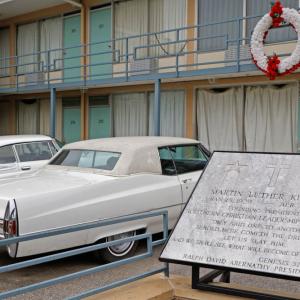
The Lorraine Motel, in Memphis, Tenn., where Martin Luther King Jr. was assassinated. Pierre Jean Durieu / Shutterstock.com
The deepest roots of The Shalom Center’s work to revitalize the deep connection between the Spirit and social justice were my weaving in 1968 and ’69 a new kind of Passover Seder — the Freedom Seder. My sense of the need to create the Freedom Seder grew from the deep crisis of American democracy in those years. For me, one crucial aspect of that crisis was the murder of Dr. Martin Luther King on April 4, 1968. It was an act of violence ending the life and disrupting the work of our foremost teacher of nonviolence.
MLK + 50: An American Jubilee Year of Truth & Transformation
April 4, 2018 — two years from now — will be the 50th anniversary of the death of Dr. Martin Luther King Jr.
April 4, 2017 — one year from now — will be the 50th anniversary of his speech to Clergy and Laity Concerned About Vietnam, at Riverside Church in New York. There he warned us of the “deadly triplets” of racism, militarism, and materialism that were endangering America. (And still are.)
Pope Francis' Climate Change Encyclical Inspires Rabbinic Call to Action
More than 300 rabbis — inspired by the climate crisis, the Torah’s call for a Sabbatical Year of releasing the Earth from overwork, and the impending Papal Encyclical on the climate crisis — have joined their voices in the Rabbinic Letter on the Climate Crisis: a call to action to prevent further climate-fuelled disasters and work toward eco-social justice.
Rabbis from across the denominational spectrum, at this writing 333 in all, signed in support of the call in less than two weeks, and their signatures continue to grow.
Passover, Holy Week, and the Climate Crisis
Fifty years ago, the sleeping giant of America’s religious communities shook off their sleep and rose to change the country in a crisis over whether democracy would grow or falter.
Today we face a crisis over the very fabric of life – human and more-than-human – on our planet. Is there anything the religious communities, now yawning their way just beginning to awake, can bring to dealing with that crisis?
There is. Much of it comes from the Hebrew Scriptures, what Christians call “the Old Testament.” It reaches a climax in the Exodus story, recalled each year in the Jewish festival of Passover and to some extent in the Holy Week that in Christian tradition is rooted in Passover. But it pervades the Hebrew Bible.
For that is the record of the spiritual struggles of an indigenous people of shepherds and farmers in their relationship with YyyyHhhhWwwwHhhh, the Holy One Who breathes all life. They centered their God connection in sacred relationship with their land, especially through the foods they grew and then offered on the altar.
Our own generation, facing a catastrophic crisis in the Earth-earthling relationship, must go back to the Bible for guidance on how to apply indigenous wisdom to the planet as a whole.
Privacy from Rulers: Tents of Ancient Israel, Cell Phones of Today
What does the ancient arrangement of tents in an ancient Israelite encampment have to do with the ultramodern question of whether the U.S. government should be peering into the ultramodern phone and Internet records of hundreds of millions of Americans?
Or to put it another way, are there any spiritual and religious roots to the notion of personal and household privacy?
To start from the Bible: Many Jewish prayer services begin with a quotation from a non-Jewish shaman, himself quoted in the Torah (Num 24:5 — this passage of Torah will be read two weeks from now, on June 22.) There was a king, Balak by name, who hired an expert shamanic curse-hurler, Balaam, to curse the People of Israel who were swarming across the wilderness after their liberation from slavery under Pharaoh.
Biblical Economics and Ecology for the 21st Century
In the secular American political world, even among progressives, two progressive focuses – social justice and healing of the Earth – have remained mostly segregated from each other.
But the Bible, in one of its crucial passages, intertwine social justice and the urge toward healing Earth. It is as if the Bible – after watching the alienation of two May Days (pagan spring and workers’ social justice) from each other – had shrugged impatiently and said: “Now here’s the way to do it!”
The Bible calls for an entire year of rest for the land and its workers, every seventh year. Deuteronomy adds that in that year, everyone’s debts are annulled. (Deut. 15: 1-3). Thus the Bible sees economics and ecologics as intimately intertwined, and calls for a practice of strong, spiritually rooted regulation of both.
Leviticus calls this seventh year a Shabbat Shabbaton – restfulness to the exponential power of Restfulness, an echo and expansion of the restful seventh day. Deuteronomy calls the year “shmitah” – “release” or “non-attachment.”
Why all this? Because, says YHWH, YyyyHhhhWwwwHhhh, The Interbreathing of all life, “The earth is Mine. You are but sojourners, temporary visiting-settlers, with Me.” (Lev 25: 23)
God’s Earth is Crying Out; God’s People, Responding, Must Prepare for Jail
God’s creation is in danger; and to call upon the powers of the world to heal it, God’s people are prepared to go to jail.
Perhaps most famously in our recent history, the startling sight of a religious leader in jail was embodied in the willingness of Dr. Martin Luther King, Jr., to go to jail more than 20 times in order to embody his religious commitment to racial justice, peace, and nonviolence.
As we approach the Holy Week of Christianity and Passover, we should be aware that this tradition goes back thousands of years. The movement of ancient Israelites seeking freedom from a lethal Pharaoh began even before Moses, when two midwives – the Bible carefully records their names, Shifra and Puah – refused to murder the boy-babies of the Israelites as Pharaoh had commanded. The recollection of that moment is the first recorded instance of nonviolent civil disobedience.
When that cruel and arrogant Pharaoh, addicted to his own power, refused freedom to his nation’s slaves, his arrogance forced the Earth itself to arise in what we call the Plagues – ecological disasters like undrinkable water, swarms of frogs and locusts, the climate calamity of unprecedented hailstorms.
Passover has kept alive and lively the memory of that uprising. So it is not surprising that the Gospels record that just before the week of Passover, Jesus led a protest against the behavior of the Roman Empire, its local authorities, and a Temple he and his followers thought had become corrupted from its sacred purpose.
To protest against the Empire of his era, Jesus chose a time that was both appropriate and dangerous, since Passover celebrates the fall of Pharaoh. His challenge resulted in his arrest and imprisonment, and then his torture and execution.
Both Judaism and Christianity can trace their origins to acts of nonviolent civil disobedience. Indeed, for several centuries of Imperial Rome, the very persistence of Rabbinic Judaism and Christianity were collective acts of civil disobedience.
Today, religious folk face modern plagues imposed upon our countries and our planet by a new kind of Pharaoh.
In Sandy’s Wake, Can We Now Create a Hurricane of Social Change?
It is not surprising that our purely secular “environmental” movements have played out their ability to change society. For the changes we need to undertake are not only technological and political, but deeper and more difficult. They call on us to shape new institutions and new values.
When God’s Wind shattered Pharaoh’s power at the Red Sea, it was only the beginning of the creation of a new society. It took 40 years of struggle, of transformation and mistake, backsliding and grumbling, to ready a people that could live in a sacred relationship with each other, with the Earth, and with the Breath of Life.
So even if we were to shatter the gross and domineering political and economic power of our modern pharaohs, the giant corporations of Big Oil, Big Coal, Big Unnatural Gas that will not relent from over-burning and overpowering us, we would still need to be growing what religions claim to offer: a new vision of our lives.
Palestinians at Their Worst and Best
Cast Off the Stupor of Indifference
Stop the Crippling of the Clean Air Act
The "Freedom Flotilla" Tragedy
Big Oil Isn't Just a Gulf Coast Crisis
Enough Jawboning: A Bold but Hopeful Proposal for Middle East Peace
The Inevitable Results of War: Sins as Well as Crimes
Howard Zinn's Last Advice to Me (and America): 'Independence from the Military-Corporation'
Tuesday morning -- just two days ago -- I wrote to half a dozen leaders of progressive thought and action in America, each separately, the letter that follows.

